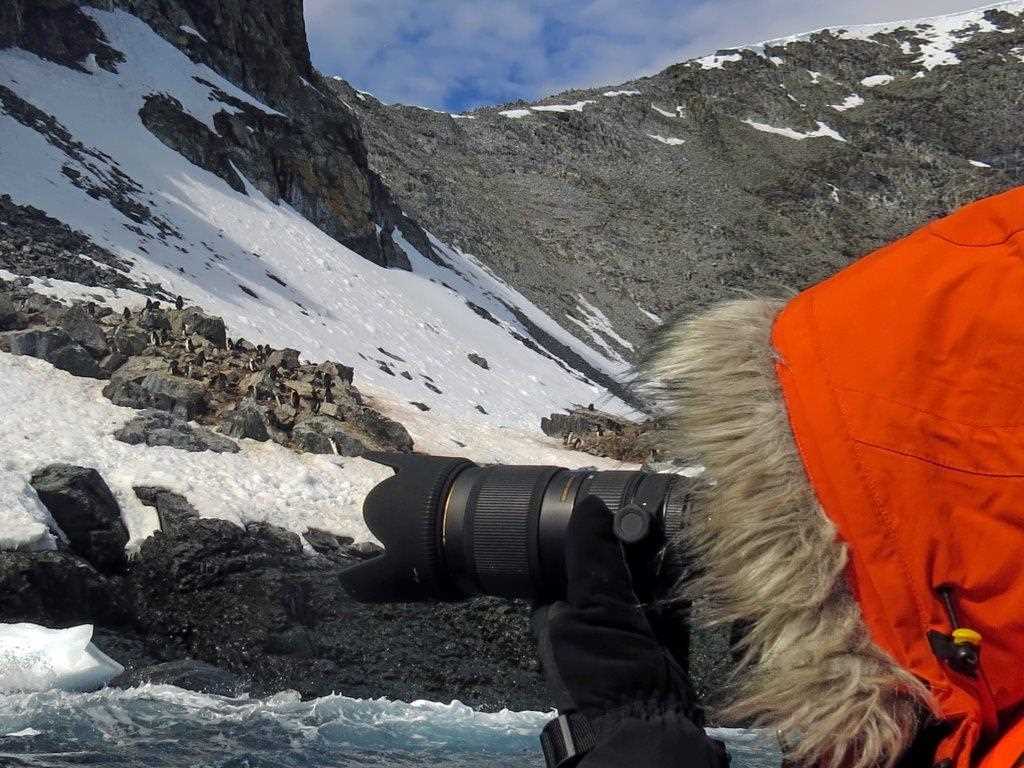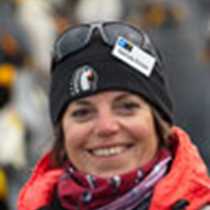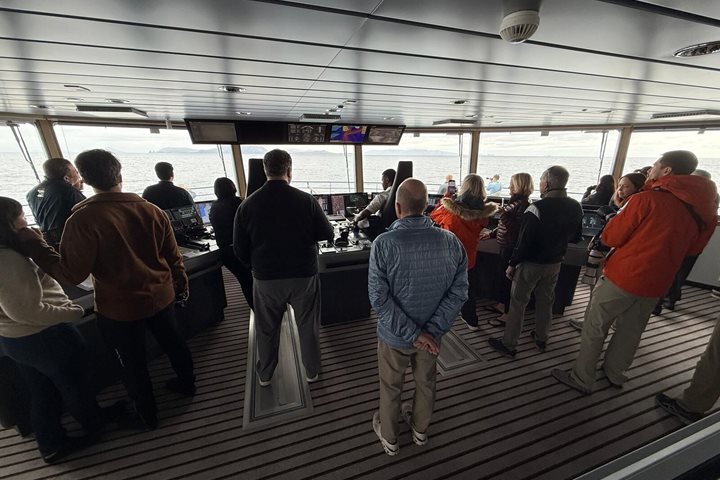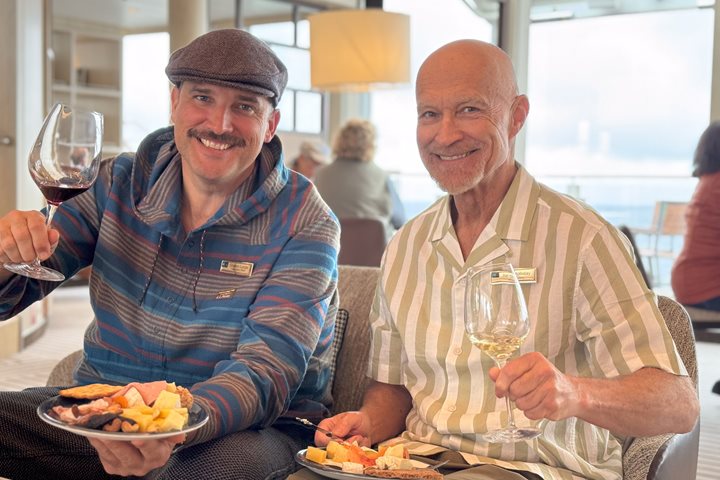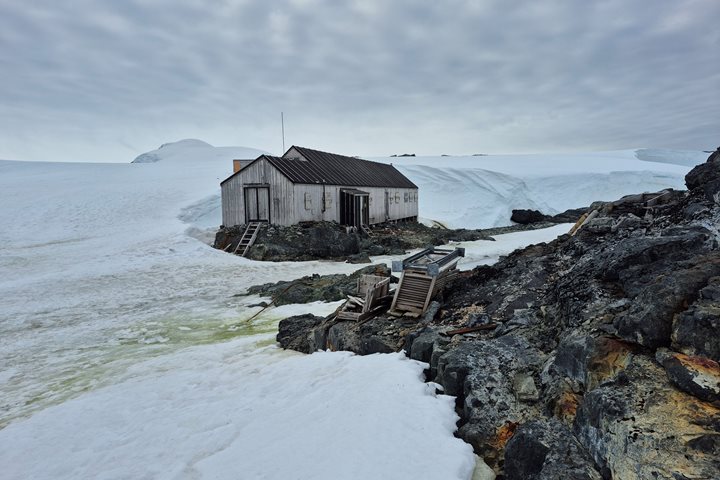Last night’s adventurous sailing to Antarctic Sound in the northeast side of the Antarctic Peninsula gave us an understanding of the natural forces that dominate this place. We experienced the power of the winds that are characteristic of the Weddell Sea and we marveled at the gigantic tabular icebergs that break off the nearby ice shelves. The captain invited us to the bridge while he and his officers maneuvered National Geographic Orion with proficiency among the towering ice.
Today, a serene morning awaited in the northwest side of the peninsula. Within the shadows of a thick fog emerged the mountainous shape of Astrolabe Island, a 3-mile long island home to chinstrap penguins, Antarctic fulmars, and Antarctic skuas. The landscape was very dramatic: dark conical peaks known as the Dragon’s Teeth stood in stark contrast to the vivid indigo blue and white surfaces of the asymmetrical icebergs and bergy bits that surround the coast. The swell was incessant on the thin cobblestone beach, hence, a Zodiac cruise proves to be the right choice for exploring the adjacent shores and cliffs. A group of Weddell seals were basking on the snow oblivious of our presence, and we could hear from afar the cacophony of thousands of penguins nesting on the cliff faces. Suddenly, the fog rolled over, covering the island before our eyes, as if it did not exist, as if the couple of hours we spent there were just a dream.
No briefing from the staff could have prepared us to the afternoon’s activities. We arrived to a large glaciated bay called Lindblad Cove. In 1995, this place was named to honor the contributions of Lars-Eric Lindblad, the pioneer of environmental-conscious expedition cruising in Antarctica and the father of the founder of our company, Sven-Olof Lindblad. The blue skies and the calmness of the seas allowed for the launching of the kayaks and many took this unique opportunity to explore Antarctica from the yellow boats. Soon, they were on their way exploring the icy vastness. Others preferred the speed and ease of Zodiac cruising, which paid off by spotting a curious leopard seal. Whatever activity you chose to take part in, the glaciated scenery and the occasional floating iceberg with penguins as passengers were a constant reminder of the privilege we feel on being in Antarctica.
The sound of animated chatter and laughter in the dining room is always a good sign: we have experienced the beauty of Antarctica first hand and we want more. The orange colors of the sunset seem like a promise that tomorrow will be another great day in the southern continent.

